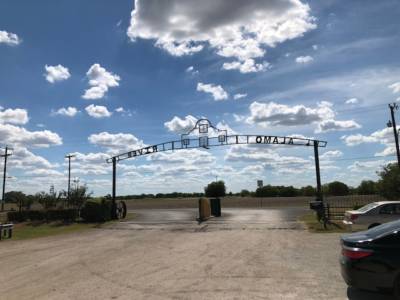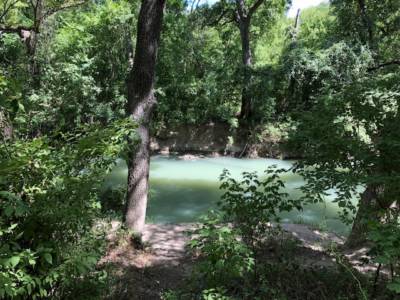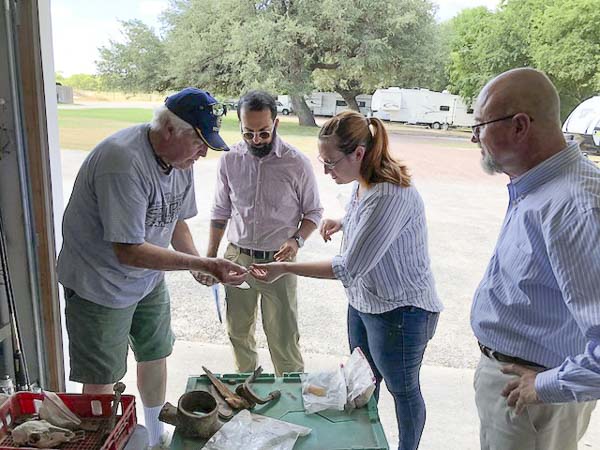 Starting in January 2019, Northwest Vista College Archaeology students won’t have to wait until their senior year of undergraduate school to take part in their first excavation dig.
Starting in January 2019, Northwest Vista College Archaeology students won’t have to wait until their senior year of undergraduate school to take part in their first excavation dig.
In a unique partnership, NVC and Alamo River RV Resort, signed a memorandum of understanding to allow students to use a portion of the land in Von Army in South San Antonio for an archaeological dig on the property. Any artifacts found will remain the property of the Resort owners, however NVC retains the right to use and display and store artifacts with their permission.
Adam O. Aguirre, NVC’s Anthropology discipline coordinator, said NVC will be one of (if not the) only community college in the state to provide this opportunity for students. Aguirre, along with NVC President Dr. Ric Baser, and NVC Dean Dr. Russ Frohardt, toured the land and signed the memorandum in mid August.
“Archaeology students typically do not get to do actual field work until at least their junior or senior year of undergraduate work, and they almost never get to start an excavation from scratch,” Adam said. “Giving students real-world archaeological experience at this point in their academic career is not only unique, it is invaluable.”
 NVC representatives have been eyeing the area along the Medina River for about two years due to its rich colonial and historical context. Based on interviews with local residents and consultants, it’s expected students will find stone artifacts and material remains dating back to the Clovis Period (prehistoric) as well as early to mid 19th and 20th centuries. Former NVC History instructor Rudy De La Cruz helped to lay the groundwork for this project by connecting the college with Charles and Roxanne Brown, owners of Alamo River RV Resort.
NVC representatives have been eyeing the area along the Medina River for about two years due to its rich colonial and historical context. Based on interviews with local residents and consultants, it’s expected students will find stone artifacts and material remains dating back to the Clovis Period (prehistoric) as well as early to mid 19th and 20th centuries. Former NVC History instructor Rudy De La Cruz helped to lay the groundwork for this project by connecting the college with Charles and Roxanne Brown, owners of Alamo River RV Resort.
Adam said the Browns are very fond of pointing out an ancient oak tree that they refer to as “Santa Ana’s Oak,” which is a stone’s throw away from the NVC perspective field site. This tree is said to be at a location where Santa Ana and his troops camped on their way to the Alamo in 1836.
Students who enroll in ANTH 2302, which is an eight-week field school class, will be able to take part in the excavation project, which will be led by instructor Whitney Lytle. Faculty and students will survey the land, dig test trenches, determine the best place to excavate, and then excavate. They will also be using the land as an on-site laboratory not only excavating artifacts, but evaluating and cataloging them as well.
Faculty and students will also partner with UTSA’s Center for Archaeological Research, as well as city archaeologist Kay Hinds, and Texas A&M’s archaeologist, and Texas expert, Dr. Alston Thoms.


2 Comments
Rudy De La Cruz, Jr.
Pingback: A Year in Review – My LaRevista